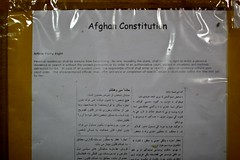In America as well as many other industrialized countries throughout the world, wealth has unfortunately come to be known, for the most part, in a financial sense. This, however, is a great shame because money in actuality is the least meaningful and significant aspect of wealth. There are so many things that are so much more valuable and that provide a much richer understanding of what wealth really is.
For the remainder of this article, I will discuss some of the things I believe constitute true wealth, and suggest some ways to achieve the wealth found in these sources.
Time
Time is perhaps the most significant aspect of wealth. People who have been alive for a long time can attest to this. Their virtually unanimous consensus is that their greatest experiences, highest-quality moments spent with friends and family, and most memorable instances of their lives all far outweigh any amount of money or material possessions they could have ever accumulated.
Yet, looking at the way time is spent in popular culture indicates that this view is not commonly held or understood. When spending overtime and late nights at the office take priority over being home on time to kiss a son or daughter goodnight, it can only be assumed that spending time working to earn money is viewed as more valuable than spending time with one’s children. No matter how hard someone argues that they are doing it for their children, the fact remains unchanged that they are settling for valuing work time over family time.
Further, when people, especially children, prefer to spend their time playing video games, seeing the latest movie releases, or spending time forming superficial and meaningless relationships with people over social networks like Facebook and MySpace, it indicates what sort of value they place on their time.
People
This ties in closely with the value and wealth found in people, since the most valuable way one can spend time is with other people. When you walk outside on a sunny Saturday morning and find no children playing together outside because they’re all indoors, glued to their television sets, it indicates that they have placed a higher value on these activities than with spending time with other kids.
This, of course, is because people are an absolutely incredible source of wealth, and time spent with other people is worth more than gold. Every minute a child spends indoors playing a video game rather than interacting with other children is a minute of potential wealth experience that they have missed out on.
]]>
Of course, that’s not to say that activities done alone are not valuable and full of wealth as well. For example, reading an educational book and even just meditating are incredible sources of true, meaningful wealth, as we will see later. However, any nonproductive moment spent alone rather than engaging in the prosperity of other people is a moment of potential wealth gain lost.
Other People’s Resources and Abilities
There are several reasons people are such incredible sources of wealth. Perhaps the most obvious is that every person alive is a unique, special, and fascinating being who is worth getting to know. There is so much value that’s so often overlooked in simply getting to know people just to learn what makes them who they are.
There’s more, though. Each and every person has amazing resources and abilities to contribute to society and to other people, and these abilities and resources are unique to different people. We would never be capable of doing the incredible things that we do as a society as individuals. For example, let’s take the construction and operation of a hospital. I feel it’s very safe to say that there is no individual who could build a modern-day hospital without other people. Let’s say that individual happens to be an architect, and designs an absolutely incredible blueprint of our imaginary hospital-to-be. This is absolutely great! However, that architect will have a very difficult time wiring up the hospital’s network, configuring its servers, and getting its patient databases rolling so that patients can be checked in and out. But, just to be fair, let’s say they’re also a builder, and IT specialist, and just an all-around do-it-yourselfer, and manage to build the whole hospital and get its computer system up and running as well. Whew! Now our only problem is the guy who just got wheeled in because he’s having a stroke.
The alternate picture, of course, would be that our architect understood the value of other people. He or she partnered with builders, doctors, IT professionals, and a bunch of people all with unique abilities and skill sets.
At this point, there should be no question in your mind regarding which hospital you would rather visit, because you see the incredible wealth found in people working together.
There is incredible power in knowing people with a ranging set of skills and abilities. When needs arise, it is very powerful to know someone trustworthy and knowledgeable who can meet those needs properly. Ironically, it can also save you money. That’s why other people are an incredible source of wealth. So form networks, get to know as many people as you can, and unleash the wealth of other people.
Life Experience
Life experience is an extremely valuable asset, as it shapes how a person reacts and makes decisions in the future. Essentially, it is a form of knowledge based on how things work or have worked in the past. And, of course, knowing that certain situations and factors result in certain things allows people to predict outcomes and therefore determines how they deal with future situations.
Of course, life experience can also be shared between other people you know, thus demonstrating even further the wealth found in other people. It also enables people to mentor others and help them make better decisions.
Knowledge in General
In general, the more you know (and the more your network of people know), the more equipped you are for life. Every fact you can learn has some sort of benefit somewhere. In that case, never stop learning. Seek to understand as much as you can, and never stop pushing your mind to its limits. It will always pay out in the end, even if you never end up on Jeopardy.
Personal Time
Lastly, there is incredible value in personal “alone” time. This is one of the sources of wealth that is ignored the most. Spending personal time gives the mind a chance to process all of the things being run through it, such as pending decisions, past events, and unchecked emotions. It often leaves people refreshed, energized, and more capable of facing everything that’s going on in their lives.
Hopefully this list has helped provoke some thoughts about what you believe constitutes wealth and what your highest values are. It’s only after we really understand what wealth really is that we are able to be truly wealthy. And, it’s not really possible to feel wealthy unless you know what that really means. So, here’s wishing that these past few thoughts will help you to feel a bit richer with every new day.
Chris DeMarco writes on a variety of real-life topics from life and spirituality to computers and technology. He is an internet and technology specialist from Michigan where he owns a computer and web service company. He is also the author of several popular blogs including his blog on life, society, spirituality, and tech, where you can find this and other great articles, as well as his consumer reports and product review blog. To learn more, visit him on The “C” Branch.
View this article in its original source at http://www.thecbranch.com/2009/03/31/what-constitutes-true-wealth
Article from articlesbase.com
Related The Constitution Articles







